Explainer: Why is Iran’s Fattah hypersonic missile a giant leap forward?
By Ivan Kesic
Iran on Tuesday formally unveiled its first domestically-built hypersonic ballistic missile, joining a small but powerful club of four countries to accomplish such an extraordinary feat.
The unveiling ceremony in Tehran was attended by Iranian President Ebrahim Raisi and a number of high-ranking military officials, including the chief of the Islamic Revolution Guards Corps (IRGC) Major General Hossein Salami and IRGC aerospace commander Brigadier General Amir Ali Hajizadeh.
The missile, named Fattah (literally "the opener") by Leader of the Islamic Revolution Ayatollah Seyed Ali Khamenei himself, is a precision-guided two-stage solid-fueled rocket with a range of 1,400 km and terminal speed of Mach 13 to 15.
This speed, along with movable nozzles that allow the missile to maneuver in all directions both in and out of the Earth's atmosphere, makes it immune to interception by all existing anti-missile systems.
Describing the production of the new-generation missile as a "giant leap" in Iran’s missile industry, Brigadier General Hajizadeh said the missile has undergone all tests without any issues.
What makes this feat unique?
Before Iran, only three countries had mastered the technology to manufacture operative hypersonic missiles, namely Russia, China and India. Their models differ in launch platforms, range, payload, and hypersonic technology itself.
Very few other countries, including the United States, have long-term hypersonic development programs, however, to this day without success or operational deployment.
For example, the 2024 budget for the US Air Force only includes provisions for technological development, but not for buying or fielding hypersonic missiles.
Taking into account the presented model and the above-mentioned specifications, the Iranian Fattah missile differs from all existing operational or developing hypersonic missiles.
Speaking on the occasion, Iran’s aerospace commander said the missile unveiled on Tuesday has many unique features and makes Iran only one of the four countries in the world to have it.
He hastened to add that Fattah “cannot be destroyed” by any missile defense systems and its range is determined to be 1,400 kilometers.
President Ebrahim Raeisi commended the country’s astounding progress in the military arena and said the missile industry has become “indigenous” that cannot be affected by saber-rattling.
He further noted that the military progress is “a source of security and peace” for the region.
How has the world reacted?
In recent years, Iranian technological achievements were accompanied by denial and ridicule in the Western media, however, this time the reactions were much more measured and balanced.
Iranian drones, once described as "useless toys" by the Western media and so-called military experts, today have become a source of consternation for the West, with the US slapping a series of sanctions on Iran.
Iran's homegrown radars and anti-aircraft systems were also the subject of ridicule until June 2019 when the most sophisticated US RQ-4A Global Hawk surveillance drone was shot down by the 3rd Khordad system. The US response was also imposing more sanctions.
In response to the unveiling of Fattah, the US Department of the Treasury sanctioned a network of seven individuals and six entities in Iran, China, and Hong Kong, citing links with Iran’s ballistic missile program.
US National Security Council official John Kirby said the Joe Biden administration "has been very firm on pushing back on Iran’s destabilizing activities in the region, to include the development of an improving ballistic missile program." The remark smacked of frustration with Iran’s growing military prowess.
Israeli regime minister of military affairs Yoav Gallant tried to downplay the significance of Fattah, claiming that "Israel would always have a solution to counter it."
Radio Free Europe, a Western propaganda outlet, cited an “expert” as saying that Fattah “does not appear to be as sophisticated as the hypersonic missiles that the US and China have developed”.
The report cited another “expert” as saying that there are "questions as to whether it is really capable of accurately hitting its target at the very high speed that has been claimed."
Military strategists the Press TV website spoke to said these so-called “expert comments” about Iran’s first hypersonic missile “show that some Westerners continue to live in denial” about Iran’s military power, which has “grown tremendously in the face of sanctions”.
Where does Iran stand?
Although hypersonic technology is extremely sophisticated as it involves advanced rocket engines, materials resistant to high temperatures and complex guidance, it is evident from the statements and reactions that there is little skepticism about Fattah’s capabilities.
One of the attestations that explain the new approach to Iran's successes is the latest report by the Australian Strategic Policy Institute (ASPI), sponsored by the US government, which tracks global development of 44 most advanced technology fields crucial for scientific breakthroughs in the future.
ASPI’s report ranked Iran as one of the top five countries of the 44 technologies tracked, ahead of Japan, Russia and France, as well as ninth in the overall ranking to predict the top ten future global powers.
One of these technologies is advanced aircraft engines, including hypersonics, where Iran ranks as fifth.
Iran also ranks fifth in the fields of nanoscale materials and manufacturing, coatings, and advanced composite materials, as well as fourth in the field of smart materials.
Furthermore, Iran has considerable experience with high-precision ballistic missiles, proven in practice against terrorist bases in Iraq and Syria, as well as against moving targets in the Persian Gulf.
IRGC chief General Salami in February informed that Iran is also developing supersonic cruise missiles, which will be another giant leap in the country’s missile tech despite crippling sanctions.
Despite Western rhetoric, Iran maintains that its missile program is peaceful and defensive in nature.
US Department of Justice releases millions of Epstein files, then pulls pages citing ‘rape’ by Trump
VIDEO | 44th Fajr Theater Festival underway in Tehran
VIDEO | Press TV's news headlines
VIDEO | Oil workers' march in support of reform of Venezuela's main oil law
VIDEO | Malaysians hold rally in front of Iranian embassy to condemn US, Israel threats
Israel to partially reopen Rafah border crossing after long closure
FM says Iran open to talks ensuring its legitimate rights and based on mutual respect
Rights groups in Australia call on authorities to arrest Israeli president


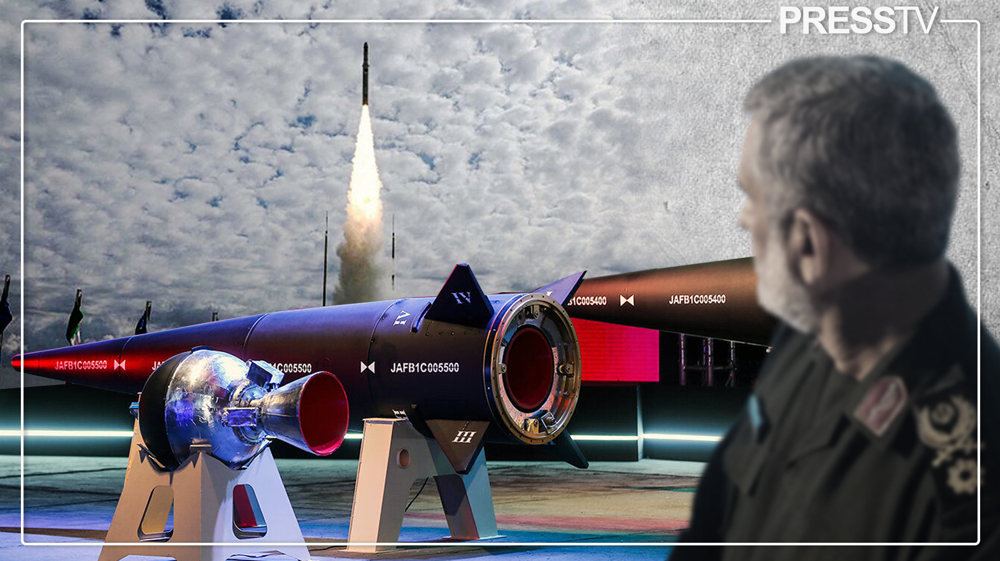


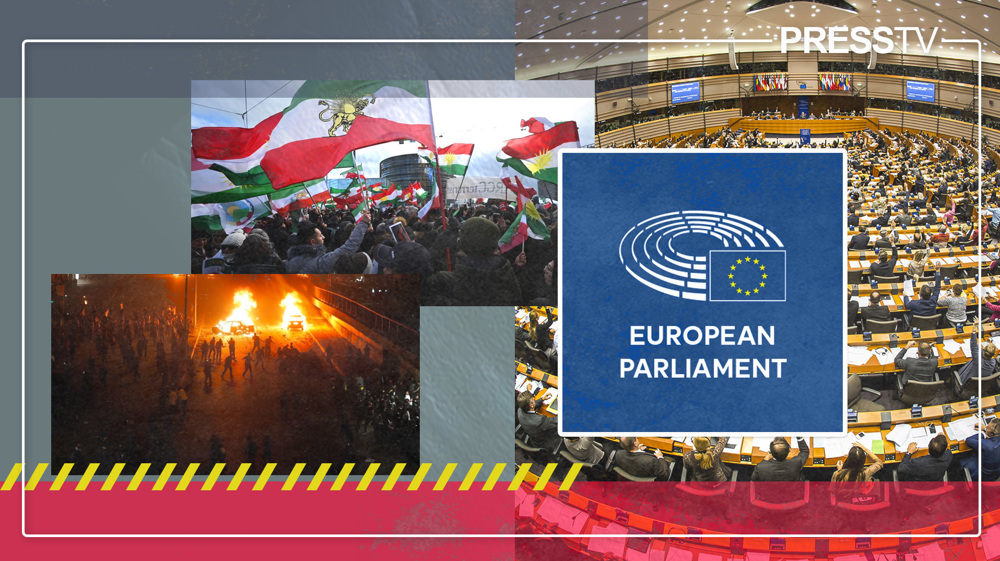




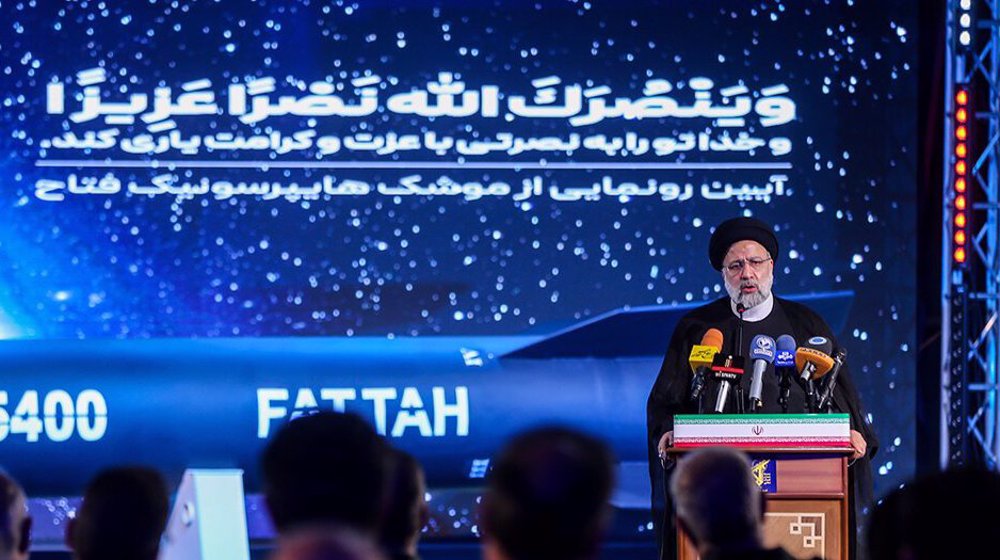

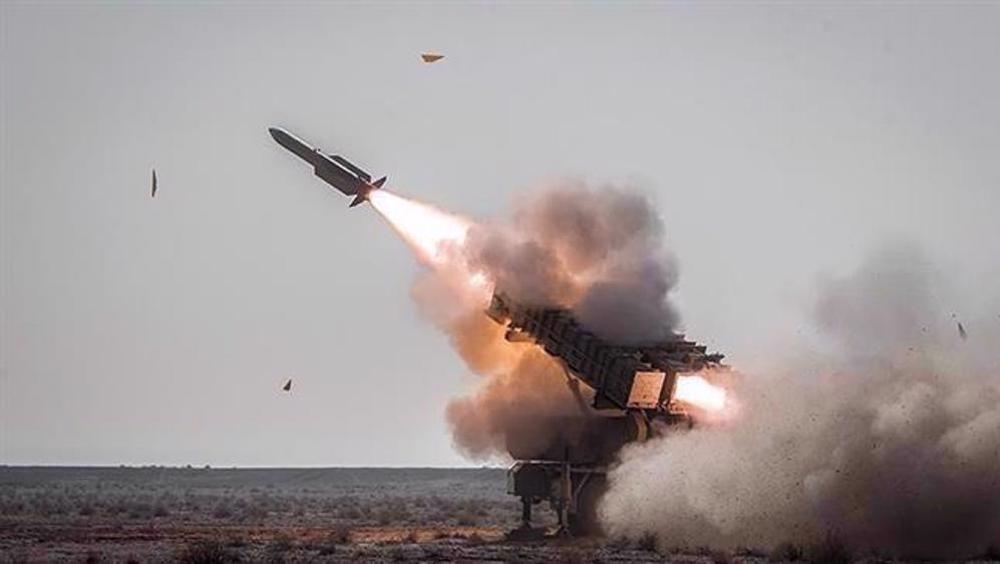
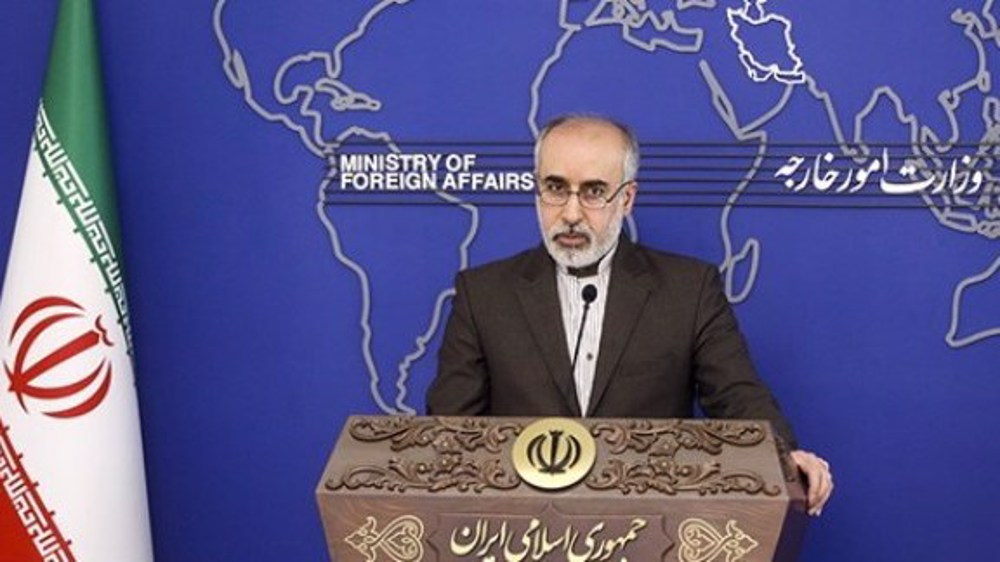

 This makes it easy to access the Press TV website
This makes it easy to access the Press TV website